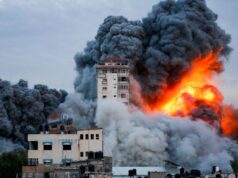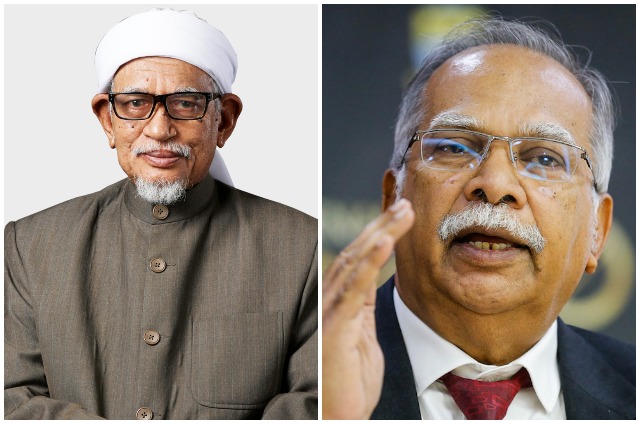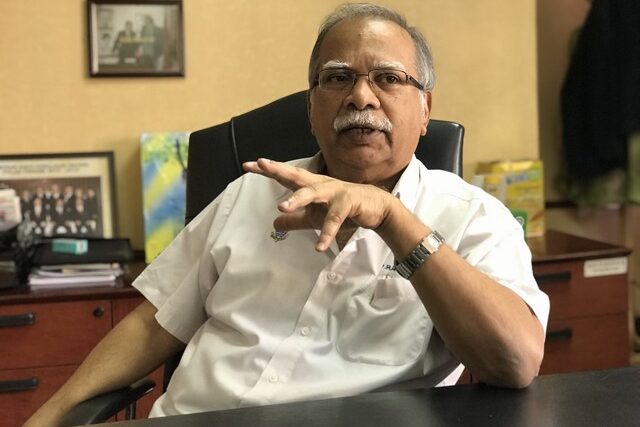

The deaths in Khan Younis, Beit Hanoun and Beit Lahiya raised the Palestinian toll to 539 killed, including nearly 100 children and many other civilians, since the offensive was launched on July 8, Gaza health officials said.
Israel’s death toll also rose to 29, with two soldiers killed in the past day of fighting, the Israeli military said. The total includes two civilian killed by rocket fire. Violence also spread to the occupied West Bank, where medics said soldiers shot and killed a Palestinian man while dispersing protesters throwing stones at a military jeep.


Washington is “deeply concerned about the consequences of Israel’s appropriate and legitimate effort to defend itself,” Kerry said. “No country can stand by when rockets are attacking it.”
“But always, in any kind of conflict, there is a concern about civilians – about children, women, communities that are caught in it,” Kerry said. A senior State Department official said on Kerry’s flight to Cairo that Washington’s goal was to “achieve a cessation of hostilities as soon as possible,” but that the process would be difficult with the sides far apart on terms for a truce.
Kerry plans to stay in Cairo until Wednesday morning and has no currently scheduled end to his regional trip, which may include talks with officials from Qatar, a Gulf state which has relatively close ties to the Islamist Palestinian group Hamas and hosts its leader, Khaled Meshaal.


Egypt presented a ceasefire plan last week. Israel accepted, but Hamas rejected it, saying the group had not been consulted. An Israeli official in Washington, who declined to be named, said he wanted Kerry to get Egypt to apply pressure on Hamas.
“NOT THE TIME TO TALK OF A CEASEFIRE”
Israel has signalled it is not in a hurry to achieve a truce before reaching a goal of crippling Hamas’s militant infrastructure, including rocket arsenals and networks of tunnels threatening Israelis living along the Gaza frontier.
“This is not the time to talk of a ceasefire,” Gilad Erdan, communications minister and a member of Netanyahu’s inner security cabinet, said on Monday. “We must complete the mission, and the mission cannot end until the threat of the tunnels is removed,” Erdan told reporters.
Hamas has demanded Israel and Egypt lift a blockade on the coastal territory packed with 1.8 million people, mostly refugees, and that Israel release several hundred Palestinians detained during a search last month for three Jewish teenagers later found dead. Israel blamed the killings on Hamas.


Hamas announced late on Sunday it had captured an Israeli soldier in Gaza, displaying a photo ID card and serial number, but no image of the man in its hands. The Israeli army said it was still investigating the allegation.
Fighters from Hamas, which controls Gaza, and its allies have repeatedly tried to infiltrate Israel over the past week through the tunnels, looking to attack villages and army encampments that dot the border area.
Netanyahu sent in Israeli ground forces on Thursday to destroy the tunnels and the militants’ missile stockpile. “Our fighters want to prove that Gaza is a graveyard for the invaders and Gaza is unbreakable,” Haniyeh said on television.
The Health Ministry in Gaza said four people were killed and 70 were wounded on Monday at Al-Aqsa hospital, when an Israeli tank shell slammed into its third floor, which housed operating theatres and an intensive care unit.
The International Committee of the Red Cross issued a statement condemning the shelling of the hospital “in the strongest terms”. It said the hospital came under direct fire at least four times and life-saving equipment had been severely damaged. The Israeli military, which has accused Hamas militants of firing rockets from the grounds of Gaza hospitals and seeking refuge there, had no comment.


In its push into Shejaia, Israel suffered its worst losses in the offensive, with the 13 soldiers killed on Sunday marking the army’s heaviest one-day loss in battle since 2006.
On Monday, 131 rockets were fired from Gaza, 17 of which were shot down by the Iron Dome interceptor system. A three-hour lull in rocket fire ended when several barrages were shot at southern Israeli towns before dawn on Tuesday, and sirens went off to alert people to take cover.
-INDIA TODAY










